Caramelizing Onions – (Or Is It)?
Caramelizing onions is a cooking technique that brings out the natural sweetness of onions by cooking them over low heat for an extended period of time. When I think of raw onion, I think of a punch of concentrated, peppery flavor. I think of watering eyes and harsh sulfur compounds. I think cold, crisp, crunchy and pungent. Caramelized onions are a whole other ballgame.
Caramelized onions are sweet and buttery, soft and kind of slippery. They are mellow and full of deep, rich, sweet flavor—slightly nutty and the perfect accompaniment to a steak or a goat cheese pizza. What kitchen alchemy is it that can turn a pungent raw onion into a sweet and melting treat?
Obviously, caramelized onions are brown. In cooking, browning takes place in several ways. One way is through caramelization, the process by which sugars react with sugars in the presence of high heat.
What Is the Process to Caramelize Onions?
The process causes the onions to break down and release their natural sugars, resulting in a rich, deep flavor and a soft, golden brown color.
To caramelize onions, you will need a large skillet or sauté pan, a small amount of oil or butter, and a pinch of salt. It’s best to use a pan that is large enough to allow the onions to spread out in a single layer, as this will help them cook evenly.
Begin by slicing the onions as evenly as possible. This will ensure that they cook at the same rate and prevent some from burning while others remain raw. Next, heat the skillet over medium-low heat and add a small amount of oil or butter. Once the oil or butter is hot, add the sliced onions and a pinch of salt.
Keep Your Eye On Them
The key to caramelizing onions is to cook them over low heat, stirring occasionally. It is important to stir the onions every 5-10 minutes to ensure that they cook evenly. As the onions cook, they will begin to release their natural sugars, which will cause them to caramelize and turn golden brown.
The process of caramelizing onions can take anywhere from 30 minutes to an hour, depending on the size and type of onions you are using. As the onions cook, they will shrink in size and become soft and translucent. Once they have reached a deep golden brown color and are tender to the touch, they are ready to be removed from the pan.
It is important to note that caramelized onions can burn easily, so it’s important to keep a close eye on them and adjust the heat as needed. If the onions start to burn, you can add a small amount of water to the pan to deglaze it and help release any browned bits from the bottom.
Where Are They Used
Caramelized onions can be used in a variety of dishes such as pasta, pizzas, sandwiches, burgers, and as a topping on grilled meats. They also make a great addition to dips, spreads, and sauces.
In addition to their delicious flavor, caramelized onions also have a number of health benefits. Onions are a good source of vitamin C, vitamin K, and fiber. They also contain antioxidants that can help reduce inflammation and lower the risk of certain diseases.
When caramelized, the onions’ health benefits are even more pronounced. Caramelization process makes the onions even more nutritious, as it increases the amount of antioxidants and other beneficial compounds.
What Is the Science Behind Caramelized Onions?
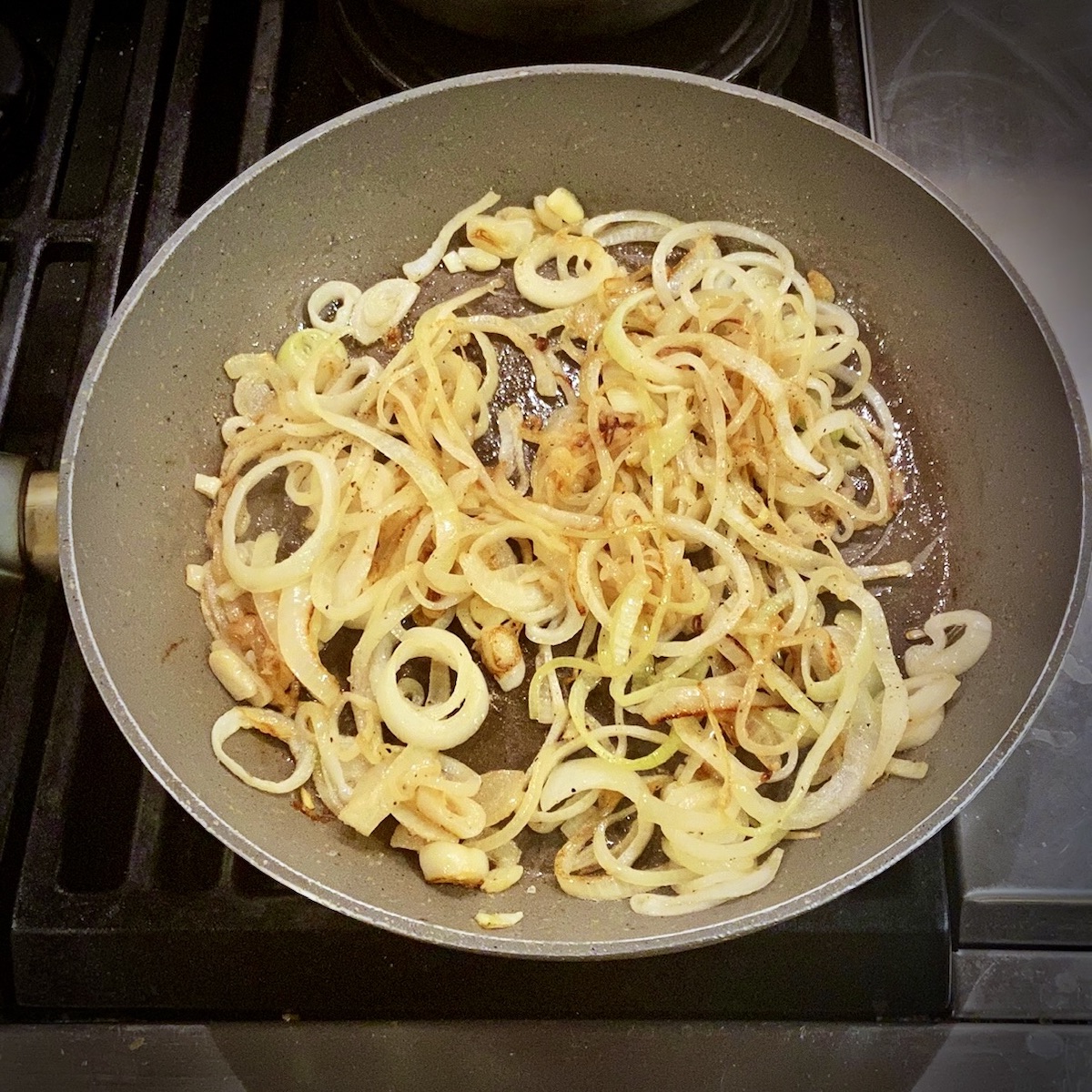
Caramelizing onions involves a combination of chemical and physical reactions, which take place as the onions are heated over low heat.
One of the key reactions that occurs during caramelization is the Maillard reaction, which is a chemical reaction between amino acids and reducing sugars. The Maillard reaction produces a complex mixture of flavor and aroma compounds, giving caramelized onions their unique taste and smell.
Another important reaction that occurs during caramelization is the breakdown of the onions’ cell walls, which releases their natural sugars. The sugars then migrate to the surface of the onions and begin to caramelize as they come into contact with heat. As the onions cook, the sugar molecules break down further, forming new compounds such as caramelan, caramelin, and various other fragrant compounds.
Caramelization also causes the onions to lose water and shrink in size, as the heat causes the cells to release their moisture. This helps to concentrate the flavor and sweetness of the onions, making them even more delicious.
Additionally, the process of caramelization requires a low heat, this allows the onions to cook slowly and evenly, which helps to prevent burning and allows the flavors to develop fully. This is why caramelizing onions is a relatively slow process, taking anywhere from 30 minutes to an hour.
The science behind caramelizing onions involves a combination of chemical reactions, such as the Maillard reaction and the breakdown of sugars, as well as physical changes, such as the loss of water and shrinkage of the onions, which all work together to produce the unique flavor and aroma of caramelized onions.
Onions – Caramelizing Onions
Ingredients
- 1 large onion sliced per your preference
- 2 tablespoons olive oil butter, or a mixture of the two
- pinch salt
Optional additions for extra flavor
- freshly ground black pepper
- fresh herbs minced, or dried herbs
- 1 teaspoon honey agave nectar or corn syrup
Instructions
- Heat a large sauté pan over medium-low heat. Add the oil/butter.
- Once the butter has melted and is hot, add as many onions to the pan as will fit in a ½ inch layer in the pan. Sprinkle the salt over the onions. The salt helps to draw water and dissolved sugars out of the onion’s cells.
- When you salt the onions at the beginning, it will take longer to achieve browning because of the extra water it draws out, but ultimately, your onions will have a much better flavor and will brown more evenly if you add the salt at the beginning of the cooking process.
- Cook the onions over medium low heat. Cooking the onions at a relatively low temperature, called sweating, allows all the water to release into the pan and then evaporate slowly. Sweating also ensures that your onions will be soft and caramelized all the way through, and not just on the outside.
- Stir the onions every couple of minutes, and adjust the heat so you here just the merest sizzle. If your pan would not hold all of the onions, add more as the ones in the pan cook down and free up more room in the pan.
- Add in your optional ingredients, if you choose to use them, and continue cooking on medium-low to low heat, stirring frequently, until the onions are soft and anywhere from honey-colored to deep brown, depending on how caramelized you want them to be.
- The process can take anywhere from ten to fifteen minutes to upwards of half an hour, depending on how many onions you are cooking and your preferred level of caramelization. Don’t worry; as long as you cook them slowly and stir them frequently, you will not end up with burned onions.
- Other vegetables related to onions (the Allium family) also respond beautifully to caramelization. Try caramelizing leeks, shallots or even garlic.

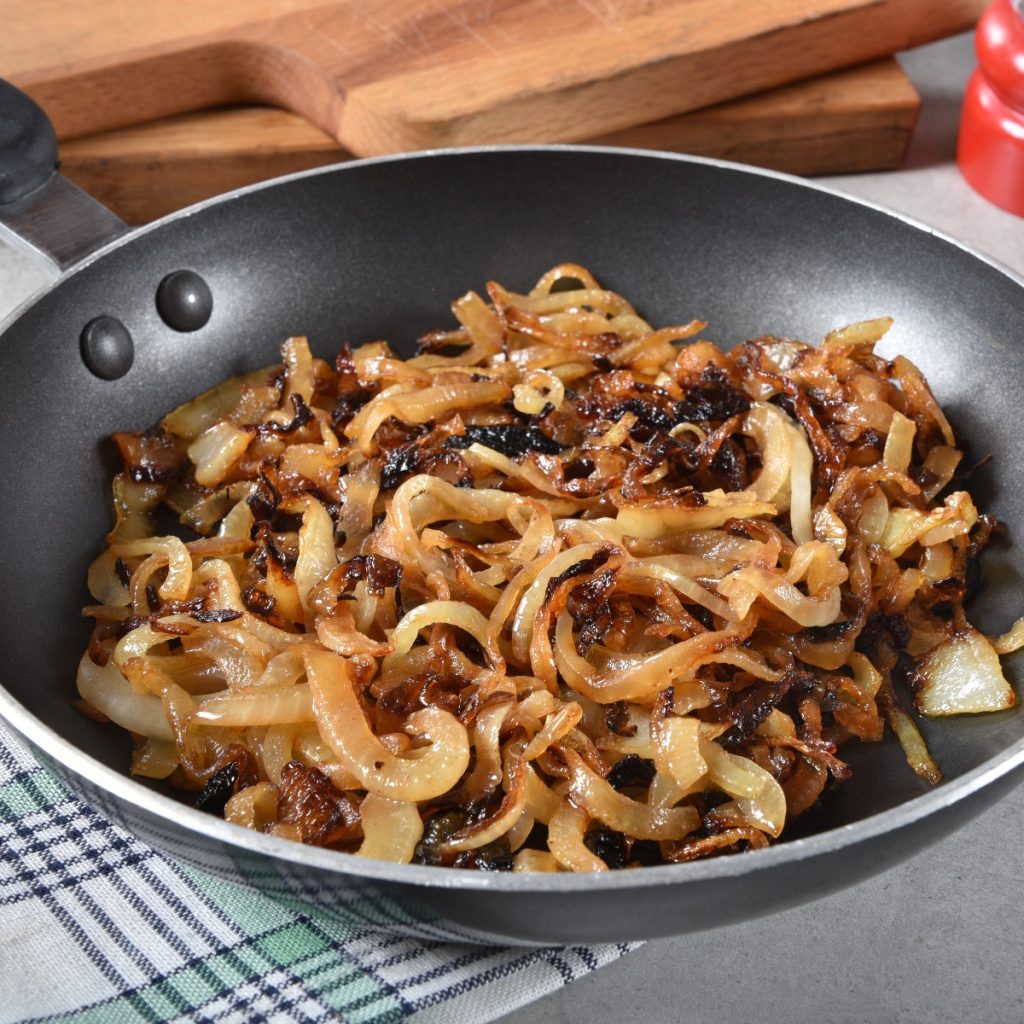
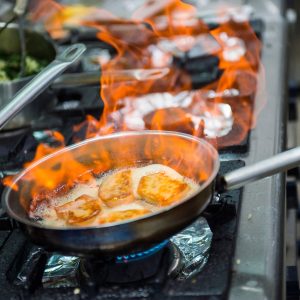


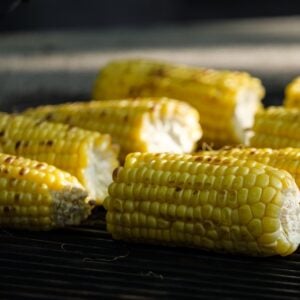

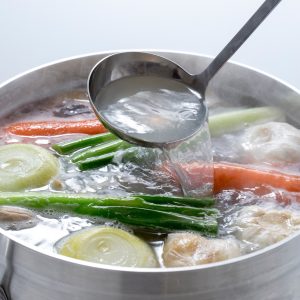



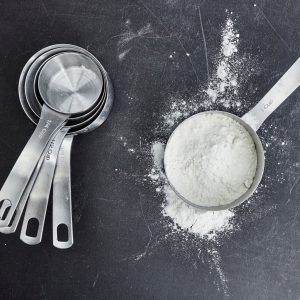


7 Responses
Thank you for making recipes simple & easy to follow, it’s so much better like this for a rare change!
Thanks Wendy. Much appreciated.
I have made honeyed onions for many, many years, it is a family and friends favorite but I never thought to add an extra flavor such as a spice.
I added a roasted red pepper spice (just a little) and boy did it ever enhance the flavor. I am making this today for a Christmas dinner of about 50 people and I know they will love it.
Thanks for the extra advice.
You are welcome Marilyn and Merry Christmas.
I salt my onions in the beginning of cooking ( sautéing ) them. I also grate my onions, using the the largest grating side of my 4 sided grater, ( not the large slit on the side ) for certain dishes ( so my kids don’t think I am using onions, because they can’t see them in their favorite foods, as they say, they don’t like onions ? Lol .) Salting them makes them sweeter and adds more flavor, that you can’t get otherwise, as I lightly brown them.
When cooking the onions for meats that are already with salt content I don’t add salt. I also don’t always grate the onions . Thank you for all the wonderful advice !
Hello. I never thought of adding spices either so I was glad to learn this.
And I was never sure when to salt them, so thanks for that info.
I have learned a new technique for caramelizing onions. I put them in my crock pot with butter / olive oil! After all, a crock pot is created for slow cooking on low heat, right? So I cook it on low for 7-8 hours. I leave the lid open a little and put paper towels underneath it to absorb the moisture.
I cook five to six onions this way, store them in a glass jar in the fridge and put some in the freezer. (The ones in the freezer can only be used in things like soup and casseroles of course.)
Give this way a try and you’ll be pleasantly surprised at the results.
Thanks Lija, I will give this method a try. Thanks for sharing.